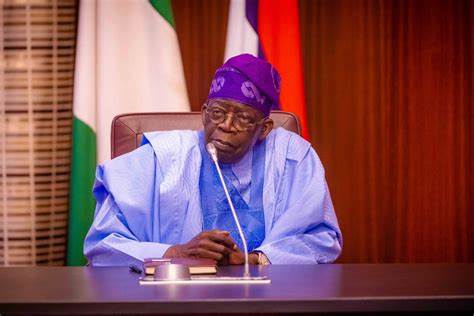President Bola Ahmed Tinubu has candidly acknowledged that he faces inevitable criticism regardless of his actions, revealing that he actively learns from those who constantly insult him during a crucial town hall meeting in Benue State.
Speaking to political leaders gathered on Wednesday to address the recent massacre that claimed over 100 lives, the President made the frank admission about the nature of political leadership and public criticism.
“No matter what I do, they will insult me. I read the papers and I learn from their criticism because I can’t see it all,” Tinubu stated during the high-level security meeting convened to tackle escalating violence in the region.
The President’s candid remarks came as he sought to rally political unity in Benue State, which has become a flashpoint for deadly conflicts between farmers and herders. His visit followed the brutal attack on Yelewata village that left scores dead and hundreds displaced.
Directing his attention to Benue State Governor Hyacinth Alia, Tinubu offered pointed advice about the realities of political leadership and opposition tactics. “Your political enemies don’t want you to succeed. Are you just realising that?” the President asked the governor, suggesting that political resistance is an inherent part of governance.
The President emphasized the critical need for collaborative leadership across the North Central region to address the persistent security challenges that have plagued communities. “We cannot do without another,” Tinubu declared, calling for unity among regional leaders.
To formalize this collaborative approach, the President announced the creation of a high-level leadership committee that will convene in Abuja to develop comprehensive strategies for achieving lasting peace in the region. “I will want us to create a leadership committee now to meet in Abuja to fashion out a strategy for lasting peace. And I am ready to invest in that peace,” he stated.
As part of the institutional framework for peace-building, Tinubu announced the establishment of a Committee of Elders comprising all former governors of Benue State and the current Governor of Nasarawa State. This committee will be tasked with charting a sustainable path toward reconciliation and stability in the troubled region.
The President also addressed one of the most contentious issues underlying the farmer-herder conflicts by urging Governor Alia to provide land for ranching activities. This recommendation represents a key component of federal efforts to address the root causes of the violent clashes that have devastated rural communities.
Tinubu made a direct appeal to Benue citizens to embrace unity and work collectively toward achieving lasting peace in their state. He emphasized that sustainable solutions require participation from all segments of society, not just political leadership.
The President also charged traditional rulers with playing an active role in promoting stability and reconciliation, recognizing their influence in community affairs and conflict resolution.
In offering personal advice to Governor Alia, Tinubu drew from his own experience with political criticism and opposition. “Be ready for insults — that is the yoke of leadership. Get your lantern. Seek out those leaders and join forces to find solutions,” the President counseled.
The town hall meeting represented a significant federal intervention in Benue’s security crisis, bringing together governors from the North Central zone, security chiefs, traditional rulers, and civil society representatives. The gathering aimed to develop coordinated responses to the escalating violence that has claimed hundreds of lives and displaced thousands of residents.
The President’s admission about learning from critics reflects a pragmatic approach to leadership feedback, even as his administration faces mounting pressure over various policy challenges. His remarks suggest an awareness of the political dynamics surrounding his presidency while maintaining focus on governance priorities.
The Benue visit and subsequent announcements signal the federal government’s recognition that the state’s security challenges require sustained political commitment and innovative approaches beyond traditional security measures. The proposed institutional mechanisms represent attempts to create lasting frameworks for conflict prevention and resolution in the volatile region.

















